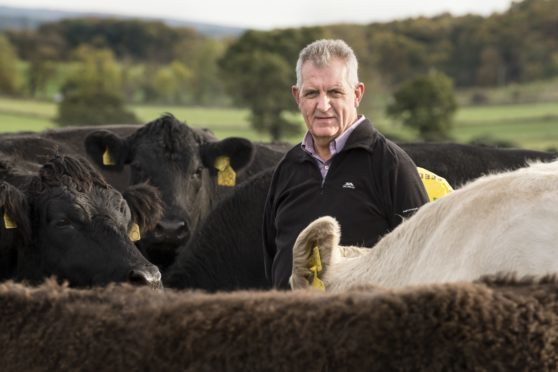The livelihood of Moray’s farmers is being badly affected by the recent dry weather in the region.
With rain a rare occurrence over the last few months, the local farming industry has been badly affected.
A lack of rainfall has meant that the fields are struggling for water to help the grass grow.
This had led to grazing grass for livestock such as cattle and sheep to be in short supply, and is forcing farmers to buy feed for them elsewhere, which has caused prices for the likes of silage to spiral.
Many livestock farmers who rely on buying feed from other farmers will be forced to pay premium prices, as some of the product usually sold will be kept to feed their animals.
Martin Birse, farm manager at Pitgaveny Farm in Elgin, said that the lack of rainfall was having an adverse effect on livestock in the area.
He added: “The dry weather has had quite an impact, and although I don’t know the exact rainfall over the last few months, there hasn’t been much.
“Grass is a big problem now, as there is a lack of it for cattle and sheep, and we are being forced to feed them silage that we would have otherwise sold on.”
Some local farmers have been trying to reduce their number of livestock, so they have fewer mouths to feed, showing how badly the industry has been hit.
Moray MSP Richard Lochhead has met local farmers, and vowed to do all he can to help them get through this tough period.
He said: “The dry weather has therefore brought challenges for our local farmers for a combination of reasons with the potential for cash flow problems.
“Clearly, the more rain we have, the easier things will get, but much of the damage has already been done.
“I will be taking up their issues with Scottish Ministers to ensure that anything that can be done is being done to help them through this difficult summer.”
Mr Birse praised local farmers for being resilient, but warned that prices for food such as burgers and sausages might go up.
He said: “Farmers are a resilient lot and we will do our best to mitigate these problems. However, it will cost a lot more to feed the livestock and this might cause an increase in prices.”
